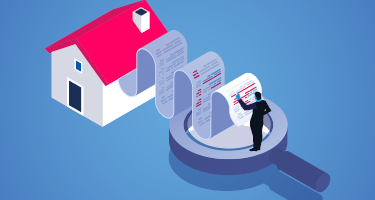COVID-19 has likely accelerated the inevitable, closings done remotely and virtually. The days of “table” closings are numbered, although there will always be situations and circumstances necessitating, and parties that want, to close in person.
Remote Online Notarization (RON)
Act 254 of the 2020 Louisiana Legislature’s Regular Session is the latest legislation that will assist the industry in moving toward that goal, which enacted La. Revised Statute 9:2760, et seq. and La. Revised Statute 35:621, et seq. The portion of Act 254 enacted as Revised Statute 35:621, et seq. is generally referred to as RON, which stands for Remote Online Notarization.
The highlights of the Remote Online Notarization statute are set out below, and as you will see from some of the requirements and restrictions, some portion of the closing, for now, will still have to be done in person, unless powers of attorney or closing documents are mailed to the borrower/purchaser/seller. That will still require an appearance before a notary and witnesses for some of the more important documents.
The industry has moved toward having some of the standard bank/mortgage loan documents signed remotely through DocuSign or a similar platform in advance of the closing, provided the lender is set up with the necessary software. However, there are several essential documents that must be signed in front of a notary and/or witnesses, which has resulted in many of the lenders continuing to send the entire closing package to the closing notary for execution by the borrower/purchaser at the “table.”
To begin with, RON requires that all documents that must be notarized must contain the notary’s certification that the tangible copy is an accurate copy of the electronic record (R.S. 9:2760).
Authentic acts must be executed before a notary and two witnesses and may not be done remotely. Included in the prohibition or restriction from remote notarization under R.S. 35:623 are the following documents:
- authentic acts
- wills or codicils
- trust instruments
- donations
- matrimonial agreements
- acts modifying, waiving, or extinguishing an obligation of final spousal support or acknowledgments thereof
Requirements of the Notary Public
A notary public physically located in a parish of this state may perform a remote online notarization for a party who is not in the physical presence of the notary and who may be located elsewhere in or outside of this state. Any witness to an online remote notarial act must be in the physical presence of the party signing the document (R.S. 35:626). As part of the RON process, the notary must verify the identity of any party or witness appearing remotely through the use of communication technology, including personal knowledge of the individual, review of government issued identification, driver’s license, passport, and such other similar identification methods (R.S. 35:627).
Every act that is notarized remotely online must contain a statement by the notary that it is a remote online notarial act (R.S. 35:627). The notary has the additional burden of taking reasonable steps to ensure that the communication technology used in the performance of a RON is secure from an authorized interception (R.S. 35:627).
Further, the notary is required to (1) maintain electronic copies capable of being printed in a tangible medium of all RON acts for at least ten years after the date of the act; (2) maintain an audio and video recording of each RON act for at least ten years; and (3) take reasonable steps to secure the records required to be maintained from corruption, loss, destruction and unauthorized interception or alteration (R.S. 35:628).
The RON process may only be conducted by a Louisiana notary with a valid commission from the State of Louisiana.
The Future of Virtual Closings
Because of the foregoing burden on notaries to maintain such records, it is likely that traditional closings will continue to take place for the time being.


























